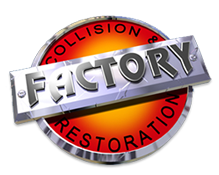Metals and Carbon Fiber used in Vehicle Manufacturing
As auto technology evolves, so does the materials from which vehicles are made. Many different metals, plastics, and carbon fiber are used to manufacture the various components of a car. Manufacturers may try different materials because each material can affect things like production cost, fuel efficiency, safety, and more.
In collision repair, sometimes, the parts of a vehicle need to be replaced. Regardless of what your vehicle is made from, it helps to know a little about auto manufacturing materials so that you can make an informed decision as to replacement parts.
Steel & Iron
Most antique vehicles are made from steel. Today, many vehicles are still made with steel and iron – but not nearly as much of it. Steel is still strong, durable, and readily available. Modern science and technology has led to new combinations of materials that allow the same durability and protection that steel can provide while increasing safety and fuel efficiency of a car.
While steel and iron provided a strong and sturdy vehicle, they did not necessarily provide a safe environment for a person in an accident. Today, the body of many cars is still built from steel because of its strength. However, many different kinds of steel are used, like steel that can crumple on impact to soften the force of the impact on a passenger.
Steel and iron are also extremely dense and heavy, which did not allow for maximum fuel efficiency. Today, most of the weight of a vehicle still comes from steel and iron but other materials have been substituted as well.
Aluminum
Aluminum is a relatively new material in the world of auto manufacturing. It is a very lightweight metal, and while not necessarily as durable as iron, it can be very beneficial in high performance vehicles. The light weight allows for faster acceleration and better fuel mileage. One of the biggest benefits of aluminum is that it is resistant to rust.
Titanium
Titanium is strong, but not quite as strong as steel or iron. It is lightweight, but still heavier than aluminum. It is also resistant to corrosion, which is why it is a valuable metal to use in vehicle manufacturing.
Carbon Fiber
Carbon fiber is another modern material in the auto manufacturing world. It’s used mostly in high end vehicles, and is commonly used in brakes. It is much stronger and lighter than steel, but it is also many times more expensive. However, in modern cars, it is used increasingly to replace formerly metal parts.
Which Material is Best?
When it comes to collision repair, it might be best to use parts that are the same as your original vehicle parts. But what happens when original parts aren’t available? Using substitute materials on your vehicle is not necessarily bad, but it is a discussion you should have with your collision repair shop.

Recent Comments